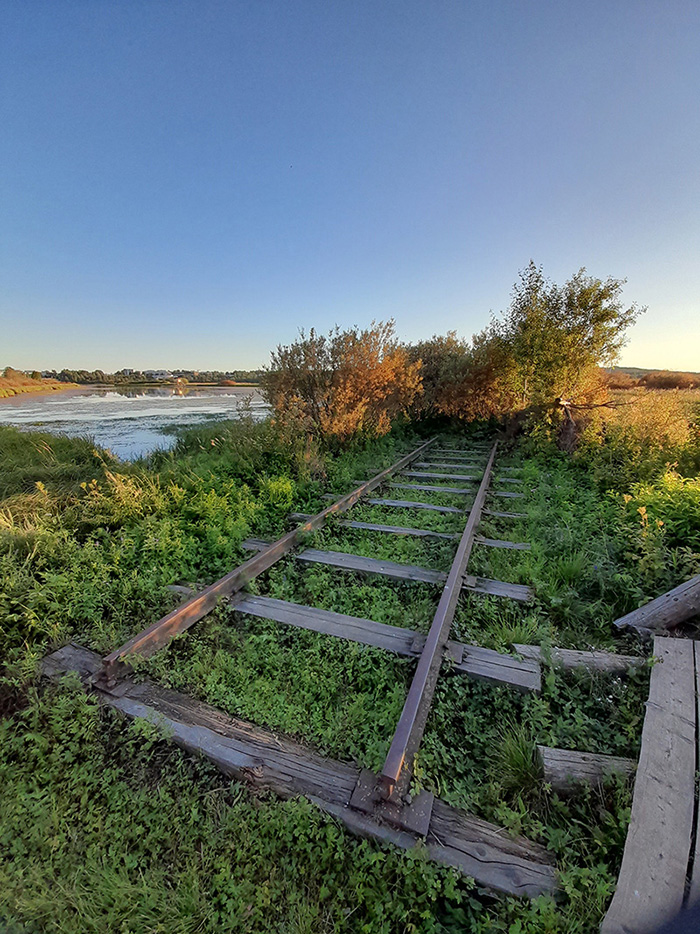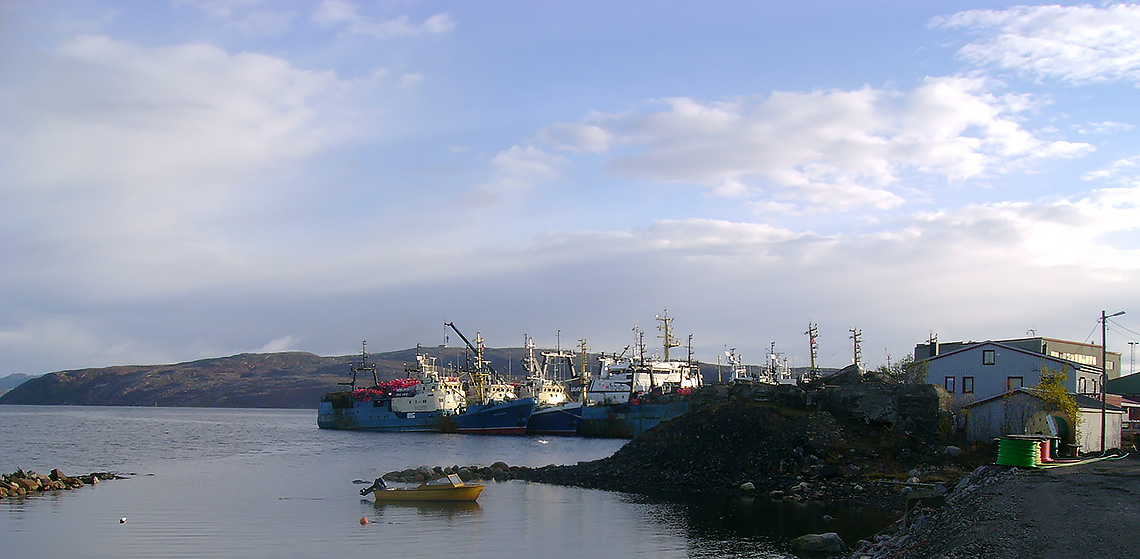NPE researchers Adrian Braun and Joonas Vola share a few insights and memories about their research paths that started a decade ago with internships in September 2011. Both did not foresee which enormous impacts an internship at Arctic Centre would have for their professional careers and consequently also for their lives.

The picture represents a fragment of a railway in Koivusaari nature trail, facing the river embankment in which the Arktikum building and the Arctic Centre stands. It was taken during one of the blog authors’ joint recreational walks.
A decade is a long time span, sometimes it feels that time passes by quickly, but a more thorough reflection reveals that plenty has happened and a lot has changed meanwhile. In September 2011, around the Northern and Global Political Economy, the world also looked a bit different than it does today. As the NPE research team and overall the Arctic Centre is very much concerned about developments in the High North, we can look back and see that large parts of the society looking now at challenges that were on our research agendas already back then. The issue is, back then the problems seemed so far away that hardly anybody paid attention outside academia.
For the reader it may not come as a surprise that one of these topics is climate change that meanwhile becomes better known as “the climate crisis” due to the fact that adverse impacts to the ecosystems and society appear in stronger and faster pace than world leaders and the global society anticipated. The focus on natural resource exploitation, paying attention to a changing Arctic in terms of traditional livelihoods, urbanization and gender studies with respect to Northern communities turned out to be relevant.
This blog entry is not particular about these meaningful and sometimes threatening developments in the Arctic (and beyond) and the significant work that has been done in this research institute, but however, everyone should feel very welcome to browse this website and learn more about the publications of the researchers´ community at Arctic Centre to better understand the context and why many of us underline the urgency for actions particularly with respect to the negative ecological impacts in the Arctic.
Both Joonas Vola and Adrian Braun started their internship in September 2011 at the Sustainable Development research group, from which the current Northern Political Economy research group originated, working directly for the leader of the group Research Professor Monica Tennberg. Back then the trainees were both in the final stages of their individual master’s studies, sharing now an office in Arktikum House, and were excited to have the opportunity to get a glimpse into the world of academia especially in such dynamic fields as political economy and social-scientific aspects around the Arctic and Finnish Lapland was something that both considered as fascinating and they wanted to learn more. Joonas Vola worked back then a lot with the adaptation to extreme weather events due to the climate change in the Arctic, including storms and floods causing harm for people and infrastructure. Adrian Braun´s internship subject was Corporate Social Responsibility (CSR) in the Arctic and therefore he analysed diverse sustainability reports of forestry, oil & gas and mining companies operating in high North latitudes.
Both of these thematic areas showcased that the Arctic is in fact not really remote, as particularly in the European part, there are quite many people living in the high North and plenty of business operations are under way, too. A decade later, we understand that our research topics are not only significant, but it seems they become more relevant year by year that passes by! Beyond the mere focus on research, there was also a lot more positives in the working life. Despite being just an intern, it was a great experience to be immediately part of the research community and attending the NPE team meetings, research seminars, visiting conferences and getting first teaching experiences in the framework of the Arctic Studies program at the University of Lapland. Moreover, there was plenty of interaction with other interns and young doctoral candidates across the teams of the Arctic Centre. At the coffee breaks, all members of the Arctic Centre got together from the interns to the senior researchers at the same table and have relaxed conversations. This has not changed to this day.

The picture represents a harbor and seashore with many ships. It has been taken in October 2011 in Kirkenes in the high North of Norway, where Adrian Braun had during his internship a great opportunity to join a research workshop with international scholars for several days.
These aforementioned positive aspects about being at Arctic Centre in addition to the fascinating work around Arctic issues, awaked high interest for both former interns to continue at the Arctic Centre also after Master studies graduation. With gratitude towards NPE team leader Monica Tennberg and her proposed career paths both interns became researchers soon after and started their doctoral studies in their respective fields. Although the life of a researcher is not always particularly easy and there might be once in a while the challenge of receiving continually funding, the magnificent experiences by meeting scholars and other people from all over the globe with the same interests, exploring parts of the Arctic ourselves and the enormous flexibility and potential to learn everyday something new, led to the point that both researchers still approve their career decision from a decade ago. This is how an internship could be a life-changer! Considering the tough transition from being a student to the competitive job markets nowadays, it is good to give effort and thorough thinking towards an internship place, it might be eventually a long-term career opportunity and could open many doors. Furthermore, an internship may also allow a decade long friendship to evolve.
Text and photos by Adrian Braun and Joonas Vola.